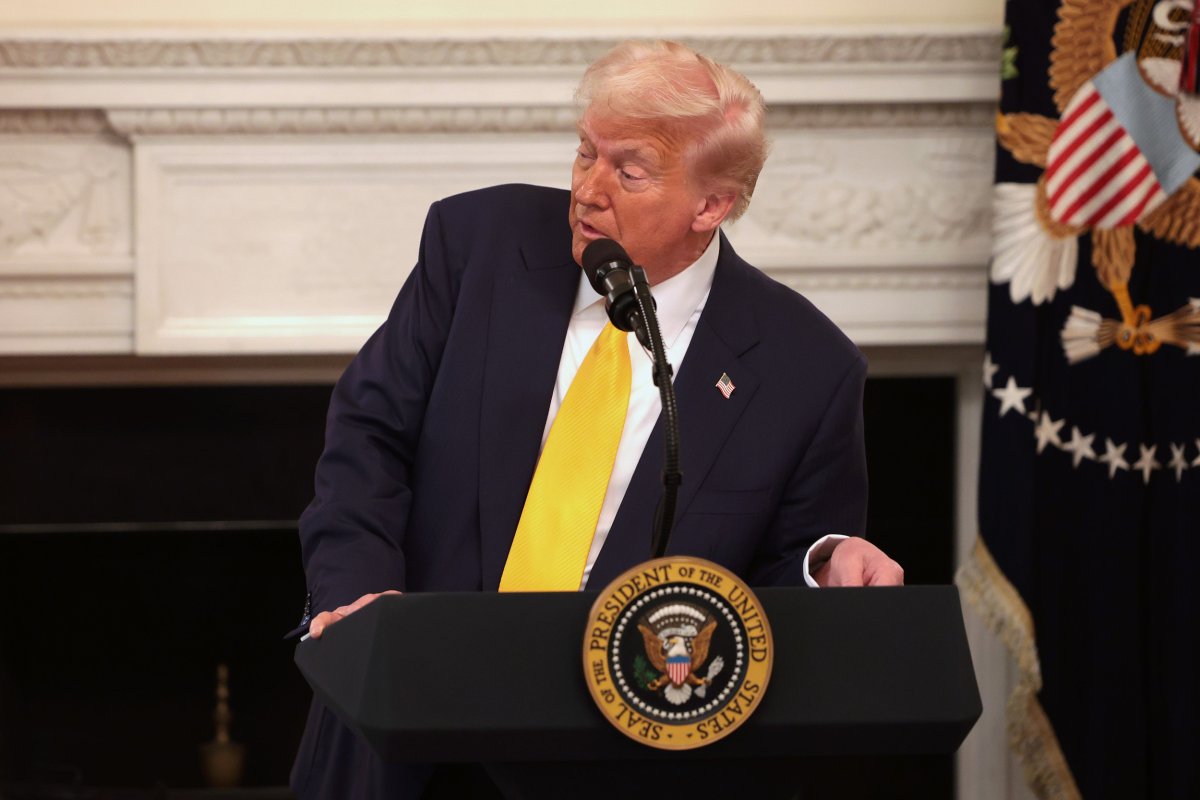A Maryland judge has extended a restraining order that prevents President Donald Trump’s administration from cutting funding to hospitals that provide gender-affirming care to minors.
Newsweek contacted PFLAG and attorneys representing the Trump administration for comment via email outside regular business hours.
Why It Matters
Upon returning to office on January 20, Trump signed a slew of executive orders, several of which have been blocked by federal courts. The legal challenges brought by activists and state governments indicate institutional resistance to Trump’s agenda, and the outcomes of the cases could define the president’s tenure and his ability to make changes.

Win McNamee/Getty Images
What To Know
On January 28, Trump signed an executive order blocking hospitals and clinics that receive federal funding from providing gender-affirming care to people under the age of 19.
On February 13, U.S. District Judge Brendan Hurson placed a temporary restraining order on Trump’s executive order, arguing that the plaintiffs—a group of transgender teens and LGBTQ organizations—were likely to succeed in their claim that Trump’s order was unconstitutional.
Following the order, hospitals and clinics in the U.S stopped providing puberty blockers, surgery, hormones and other medical treatments to transgender minors. The move affected more than 300,000 minors, according to the plaintiffs in the case.
On February 26, the plaintiffs, led by PFLAG—formerly Parents, Families, and Friends of Lesbians and Gays—submitted legal documents rejecting the Trump administration’s arguments for lifting the restraining order.
“Defendants’ Opposition recycles arguments already rejected by this Court and fails to provide any new record evidence to support their assertions that gender affirming medical care is either unsafe or ineffective,” the plaintiffs’ submission said.
“The Executive Orders have already imposed irreparable harm, and only a nationwide preliminary injunction can forestall additional harm once the Court’s temporary restraining order expires,” it continued.
Within hours, Hurson agreed to extend the restraining order, which applies throughout the United States.
“The temporary restraining order is set to expire on February 27, 2025,” he wrote, adding that he would extend it to March 5, “for good cause shown, and to afford the Court adequate time to review the amicus briefs and the parties’ respective filings.”
On February 25, twenty-two states filed a “friends of the court” brief in favor of Trump’s executive order. The states were Alabama, Alaska, Arkansas, Florida, Georgia, Idaho, Indiana, Iowa, Kansas, Louisiana, Mississippi, Missouri, Montana, Nebraska, North Dakota, Oklahoma, South Carolina, South Dakota, Tennessee, Texas, Virginia and West Virginia. The Arizona State Legislature, as opposed to Arizona state, also supported the president’s order.
What People Are Saying
In their brief supporting Trump’s executive order, the states wrote: “Plaintiffs seek a preliminary injunction based on a carefully curated factual narrative that is misleading at best. For the equities, they build their case primarily on unnamed ‘clinical practice guidelines’ that purportedly govern how clinicians ‘assess, diagnose, and treat adolescents and adults with gender dysphoria’ …
“According to Plaintiffs’ experts, those guidelines are the ‘Standards of Care Version 8’ by the World Professional Association for Transgender Health (WPATH)—the very guidelines the Protecting Children executive order correctly found ‘lack scientific integrity.'”
What Happens Next
The temporary restraining order is in place until March 5, but Hurson has said he may decide to grant a preliminary injunction before that date.
A preliminary injunction lasts longer than a temporary restraining order and can be appealed to a higher federal court. Given the number of states backing Trump’s order, the administration would likely appeal.


